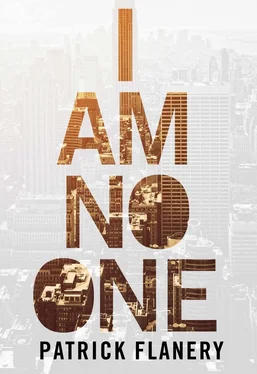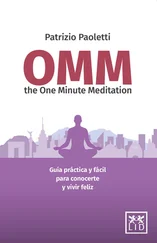‘You’re giving her money?’ Meredith moved behind her desk and wrinkled her nose.
‘It seemed like the right thing to do. She did not ask for the money but I volunteered, and by law I am obliged, although it is not an obligation I would try to avoid in any case.’
‘Have you spoken to a lawyer?’
‘I haven’t done anything illegal.’
‘You need a lawyer. I’d say you could use one of ours but I don’t think that’s a good idea. Peter wouldn’t. . I’ll ask Barry to make a referral. You need to sit down with someone tomorrow, before this goes any further.’
As she poured herself another drink, I noticed her hand shaking. She was trying to control herself, but was angrier than I had ever seen her. What I had done with Fadia was despicable, I knew that, or understood how it could appear so to my daughter, although I felt what Fadia and I had done was the product of loneliness and attraction, certainly of mutual respect, and the consequences were what made it so complicated, placing us in positions that were now threatening to derail my life. I also knew that no matter how Meredith might try to prevent herself from getting involved, she would almost certainly want to see her half-brother, refusing a future in which Fadia and Selim carried on with their lives outside of her influence. They would be drawn into the fold, incorporated, made to sever all ties with their own family for the sake of ours. At least, that was my hope, that an American sphere of influence might replace an Egyptian one.
‘So you don’t think I’m paranoid? You don’t think I’m making it up?’
‘If someone is sending you evidence that you’re being watched, then no, I don’t think you’re paranoid.’
‘But I’m no one.’
‘We’re all no one until we do something to turn ourselves into someone and you, Dad, have made choices that do just that. These days it takes so little effort to put yourself on the wrong side of the law. In the past it must have been way more difficult to do something really seriously bad, but now you can blink and end up in jail.’
‘Maybe not. Handing a letter to someone for whom it wasn’t intended. Gossiping. Mentioning to an informant, whether you knew it or not, that your neighbor was seen speaking to someone already suspected of wrongdoing. I don’t think it’s so different. It’s always been easy to drop oneself down a black hole. The only difference is the degree and speed of response by the authorities, whether you are coerced, arrested, executed. Michael Ramsey—’
‘I don’t think Ramsey has anything to do with it, Dad. He’s the dullest person Peter knows.’ She paused, staring at me with that awful look of disappointment. ‘You understand that Peter has to know what’s going on. He and I are both implicated by association with you.’
‘You make it sound like you’re the children of a terrorist.’
‘You can’t joke about these things. This is the reality of our world, and you stepped across the line, whether you meant to or not.’
I wanted to shout at my daughter, who had never made me angry in her life. What could I do? What could I have done? I had no choice but to give Fadia money. It was the only moral, ethical move I could have made, and yet in giving her money I was also, potentially, breaking the law, whether implicitly or explicitly, depending on what she herself was doing with the money, depending on whether or not she had renewed ties with Saif, depending on whether she was now, by some terrible act of chance or a delusion of conscience, giving aid to her brother the terrorist. I should not have gone to bed with her in the first place, not only because she was my student, but because of what I knew of her family. I could not govern my desire. Surely that is my worst failing?
When she began to show, there were whisperings in College and the History Faculty, though I never heard an accusation leveled against me by my colleagues, except of course by Stephen Jahn, who by then was again spending greater stretches of time away from Oxford on government business. I often watched the news expecting to see his face, either as a talking-head Middle East expert, or lost in a crowd in Egypt or Syria, standing alongside whatever person or entity America and Britain had elected for the moment to support. If colleagues other than Stephen knew or suspected that I was responsible for Fadia’s pregnancy I never heard such rumors.
It was arranged for a colleague of mine to take over the supervision of Fadia’s thesis after I announced my return to New York earlier this year. At our final meeting in my garden on Divinity Road this past July, Fadia asked me to wait for her to be in touch, not to phone or email or write until then, but as soon as she left my house I knew I could not possibly honor her request. It pained me too much to hand my boy back to his mother without knowing whether I would see him before he was old enough to make his own decisions. I felt compelled to write and phone as a way of demonstrating that my door would always be open to her, and to him. As months pass and my messages continue to be ignored, I fear there is little hope of ever seeing either of them again.
Once more, last night, I dreamt of the white room, a place that seems half-modeled on my home office, half on the black sites of secret detention which must exist in America — perhaps in smaller numbers — just as they do abroad. In this iteration of the dream I am hooded and handcuffed before being led down the hall, suspecting a shower awaits me as it has on previous occasions. Instead I become aware of arriving at a larger space, an echoing room with a high ceiling and distant walls. My hood is lifted, exposing my ears, nostrils and mouth, but the rough material is then cinched across the bridge of my nose to prevent me from seeing anything more substantial than pinpoints of light through the crosshatch of fabric. I hear rustlings of paper, metal chairs being pulled across a linoleum floor — two chairs, I think, and three sets of feet: two people seated, the third the one who led me here, who has lifted my hood, who stands behind me, his hands on my shoulders, radiating a warmth that, for a moment, fills me with a strange goodwill towards the man. I recognize his scent from other dreams, know that he is the one who habitually takes me to the showers, whose grip is firm but never cruel, who watches as I bathe, never saying a word.
Without waiting for a sign from my jailers, I speak.
‘If detention is what this is, it fails to meet my expectations. I am almost disappointed. Can you not do worse? Make me suffer bodily, give me a pain I can feel on the skin, tug at my fingernails, force death in my eye instead of this isolating torment. It’s like being made to sit alone after class, wondering when the teacher will ever return.’
‘We could do those things you suggest,’ a woman says. ‘Is that what you deserve, Jeremy?’ When she says my name, I know the woman speaking is Fadia. I squint into the pinpricks of light and her face comes into focus. ‘We could continue to treat you as a misbehaving child, or we could make it much worse. Notre régime pédagogique est assez doux . We want only that you should reflect on what you have done.’
The man behind me, the guard with warm hands, leans over and whispers in my ear. ‘This is already more serious than a school detention,’ he says, squeezing my right shoulder.
‘That never happened to Jeremy,’ Fadia says, as if she has heard the guard’s whispers. ‘He was a good boy. Never naughty.’
‘That’s right,’ I say, ‘not a single detention in all my years of education. Does my daughter know about my detention? Does she do nothing to fight for my liberty? What can you tell me?’
Читать дальше












